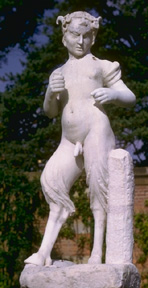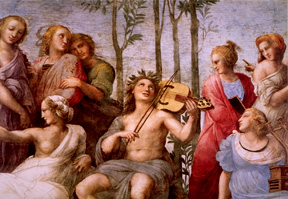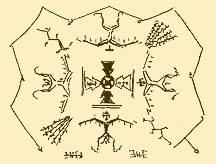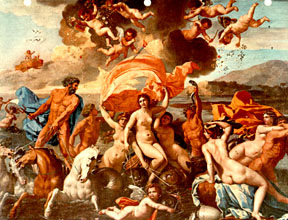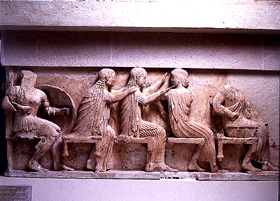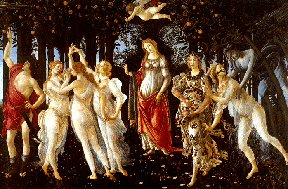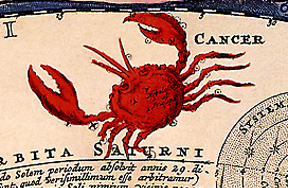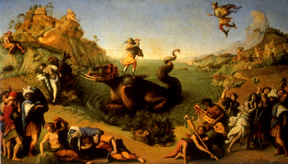Click on image for full size
Image courtesy of Corel Corporation.
Pan
Pan is the Greek god of wild nature. He protected shepherds, sheep, and goats. Pan's name is said to derive from the Greek word "paein", which means "to eat" from which come the Latin word "pascere" that means "to pasture." He was born in a central region of Greece called Arcadia and his mother and mother were Hermes and Callisto.According to an account of his birth, his mother was so horrified by his appearance that she ran away leaving him to be raised by nymphs. He has horns, beard, and legs of a goat, and he is able to shout so loudly that he terrifies people and animals. He would usually shout to those who disturbed him while he was sleeping. The word panic derives from his name.
His personality has also a gentler side. He was in fact a skillful musician . He played so well the reed pipe called syrinx, that he challenged the sun god Apollo in a musical contest. But unfortunately, Pan lost and Apollo received the prize for playing his lyre. Pan's musical instrument was called after the name of a nymph that tried to escape from his court.
Tired to be pursued by Pan, the nymph Syrinx transformed herself in a stand of reeds. In revenge, Pan used the reeds to make a pipe that calls the nymph's name. The Romans identified Pan with either Faunus or Silvanus.
When Zeus overthrew his tyrannical father Cronus, Pan helped him making part of the Titans
flee terrified by Pan's shouts. Because of Pan's role in Zeus' fight against Cronos, one of the moons of the planet Saturn was named after him.


